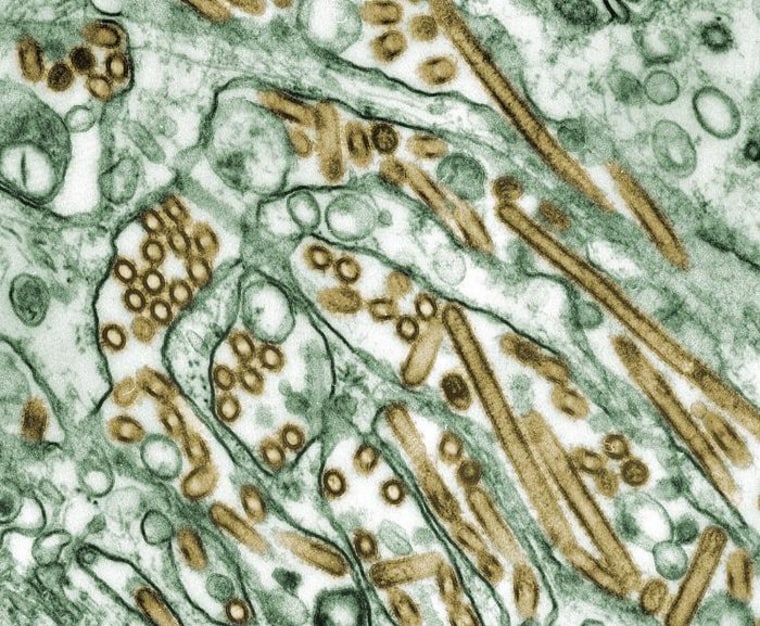A Canadian who died after traveling home from Beijing was infected with H5N1 bird flu — the first reported death in North America from the virus, which has been slowly spreading and worrying health experts for more than a decade.
The virus rarely passes person to person, but health officials said they were tracking down everyone who came into contact with the traveler to be sure.
“This is a very rare and isolated case,” said Dr. James Talbot, Alberta’s chief medical officer of health. “Avian influenza is not easily transmitted from person to person. It is not the same virus that is currently present in seasonal influenza in Alberta.”
Officials in the province of Alberta are not saying if the traveler was a man or a woman, and say the person traveled to China in December. “Upon returning to Alberta, this person was admitted to hospital on Jan. 1 and passed away on Jan. 3,” the department said in a statement.
The traveler wasn’t initially diagnosed with flu and so was not immediately tested.
“Public health has followed up with all close contacts of this individual and offered Tamiflu as a precaution,” Health Minister Fred Horne said in a statement. Tamiflu can prevent infection if given quickly enough. “None of them have symptoms and the risk of developing symptoms is extremely low. Precautions for health care staff were also taken as part of this individual’s hospital treatment.”
Horne doesn’t expect more cases in Alberta.
H5N1 avian influenza has officials worried because it keeps popping up across Asia and occasionally in the Middle East. It kills about 60 percent of its 600 or so victims and almost always the patients have had direct contact with poultry. It only very rarely appears to be able to transmit from one person to another.
A second type of bird flu, H7N9, is also circulating. It also does not appear to transmit from person to person easily.
The World Health Organization says 648 people have been confirmed with H5N1 flu, reported mostly in Asia, and 384 of them have died. Drug companies are working on a vaccine against H5N1 just in case it does start to spread more easily among people.
